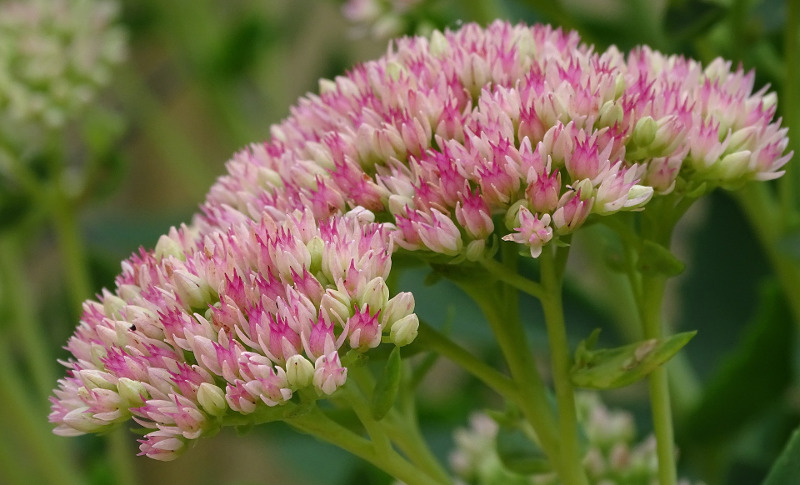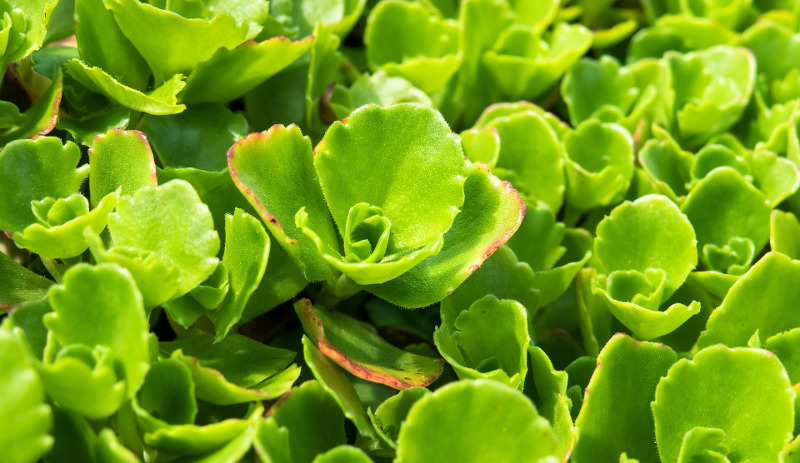Sedum, also called stonecrop is a perennial plant in the succulent family. This easy to care for plant is a popular choice for rock gardens, rock walls, as ground cover, for edging, or as an indoor/outdoor container plant. Sedums encompass 600 species of plants and are generally considered non-toxic to pets and humans. Sometimes referred to as bittercress, sedum leaves have a mild peppery, bitter flavor. A few varieties of succulents are known to be poisonous, but sedum is not one of them.

Are Sedum Poisonous to Children
Most houseplants are considered safe for infants and toddlers. Typically, plant matter does not taste good. If a child puts a piece of plant in their mouth, they will usually spit it out right away. Sedum has a bitter flower. Chances are, the taste alone will deter children from sampling it a second time. To be on the safe side, it is a good idea to keep your sedum out of the reach of children.
Are Sedum Poisonous to Dogs
Most succulent plants are harmless to animals. Because sedums don’t taste or smell appetizing, most dogs will avoid eating it. It is good to remember that consumption of any plant material may cause vomiting or gastrointestinal upset for dogs and cats. This is not expected to be life threatening to your pet.
Are Sedum Poisonous to Cats
Sedums are a succulent plant and most succulents are deemed safe for pets. There are a few varieties of succulents that can pose a threat to your feline, but sedum is non toxic. It is always best to look up the type of succulent you have. Even though cats are smart enough to stay away from plants that can make them sick, not every feline will.
Are Sedum Poisonous to Other Animals
As with humans, dogs, and cats, sedum is not poisonous to other animals such as livestock.

Symptoms of Sedum Poisoning
Although sedum is not poisonous to dogs, cats, and other animals, some varieties of succulents are toxic to animals. If you notice that your animal has eaten a succulent, identify the type of plant and call your veterinarian. If your veterinarian is not familiar with houseplants that are toxic, then contact poison control.
ASPCA Animal Poison Control Center - (888) 426-4435
Pet Poison Helpline - (855) 764-7661
Click here for a complete list of Pet Safe Plants.
It is also good to know that consumption of any plant material can cause vomiting and gastrointestinal upset for dogs and cats. Here are common symptoms of plant poisoning in a pet.
- Stomach upset
- Vomiting
- Diarrhea
- Tremors or seizures
Sources: "Toxic Plants List." American Society for the Prevention of Cruelty to Animals. aspca.org
 |
Author Chris Link - Published 01-28-2021 |
